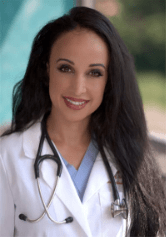 By Dr. Nina Radcliff
By Dr. Nina Radcliff
Health Benefits of Relaxation & Refreshment
Research continues to underscore the great health benefits from the simple act of relaxation. Of course for many, taking time to relax is not so simple. Facts are that it may be hard to take a break or to even plan to take a day off “to relax” or chill on vacation. But rest and relaxation is important to maintaining your physical and mental health.
Giving ourselves a break, and some quality downtime – away from the daily hustle and bustle – works!! And it doesn’t really matter what the “relaxation”activity or inactivity is but rather to give yourself (body, mind, heart, and spirit) a chance to relax, refresh and recharge. While being “on” 24/7 is a part of our modern day, we are not designed to go 24/7/365.
Rest and relaxation are essential if we wish to function properly and effectively. And doing so will leave you feeling ready to take on the world once more – along with added health benefits.
Dr. Nina’s What You Need to Know: About Relaxation and Health Benefits
Sources define relaxation in psychology, as the emotional state of low tension, in which there is an absence of arousal that could come from anger, anxiety or fear – or a too demanding, busy lifestyle. According to the Oxford dictionary, “Relaxation is when the body and mind are free from tension and anxiety (resting mind and body). It may mean re-establishing equilibrium after a disturbance.”
How to relax? It’s about a process – and understanding that taking time to yourself for rejuvenation and relaxation is just as important as giving time to other activities. At minimum, take short breaks during your busy day. Or, purposely schedule time off just for yourself so that you can recharge for all the other things you need to do.
Some use the time to reinvigorate spiritually by going to services or retreats, while others turn-off the alarms and phones, sleep in, get a massage, escape to scenic places or just give themselves the gift of a day–off to wander. And there are those who feel that working up a sweat in the backyard or taking a long walk, hike, or trip on their bike is just what the doctor ordered.
Relaxation can range from simple and easy, as discussed above, to more complex, deep relaxation techniques such as progressive muscle relaxation, guided imagery, and meditation that may require some level of training in order to develop the “skill.”
What are the benefits? Activities that relax us help to neutralize and reverse the stress response. Facts are that whatever relaxation techniques you select, it will support de-stressing and help you enjoy a better quality of life with many added health benefits, including:
Relaxation is being used clinically in much larger ranges of medical problems than the research so far has been able to assess. This includes the management of side effects of medical procedures such as kidney dialysis and cancer chemotherapy; gastrointestinal problems like irritable bowel syndrome; insomnia; emphysema; asthma; and skin disorders.
I understand that when faced with numerous responsibilities and tasks or the demands of an illness, relaxation techniques may not be a priority in your life. But that means you might miss out on the health benefits of relaxation. While not always easy – it is possible. Take breaks and give yourself “me time.” Try taking the scenic path home tonight or, perhaps, plan to start your weekend on Thursday.
Relaxation is an important part of taking care of yourself. It does not matter which type of relaxation you use but to discover your favorites. When you make time to practice relaxation regularly you will become skilled at doing which ever method suits you best – and you will notice the health benefits. Enjoy!!
Dr. Nina Radcliff is dedicated to her profession, her patients and her community, at large. She is passionate about sharing truths for healthy, balanced living as well as wise preventive health measures.
She completed medical school and residency training at UCLA and has served on the medical faculty at The University of Pennsylvania. She is a Board Certified Anesthesiologist and a member of the American Society of Anesthesiologists where she serves on committees for Young Physicians and Communications. Author of more than 200 textbook chapters, research articles, medical opinions and reviews; she is often called upon by media to speak on medical, fitness, nutrition, and healthy lifestyle topics impacting our lives, today.





